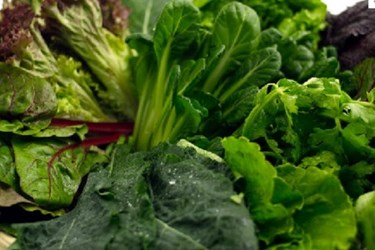New Technology Extends Shelf Life Of Leafy Greens
By Melissa Lind, contributing writer

Leafy greens are known to have a short shelf-life, particularly after purchase, but a tech transfer company from Hebrew University may have solved the problem.
In some cases, as much as 50 percent of a leafy green crop — lettuce, spinach, cabbage, and celery — can be lost post-harvest due to natural deterioration. Extending the viability of these highly perishable products will dramatically improve their marketability and profitability. To address this, The Yissum technology transfer company at The Hebrew University (HU) of Jerusalem has introduced a method for extending the shelf-life of leafy greens.
The method was invented by faculty member Dr. Rivka Elbaum at HU’s Robert Smith Institute of Plant Sciences and Genetics in Agriculture. The institute is part of the school of Agricultural, Food, and Environmental Quality Sciences, based in Rehovot Israel. The process works by dipping the leaves into an approved food additive solution that has been identified by academic publications as possibly having beneficial effects on human health. Once the leaves are coated with the solution, deterioration of the vegetable is delayed.
Thus far, proof-of-concept studies have shown that the invention delays chlorophyll loss and senescence in lettuce and other leafy cruciferous vegetables related to mustard greens and cabbage. The CEO of Yissum, Yaacov Michlin says the method could increase the profitability of leafy greens by delaying deterioration and increasing shelf-life.
Yissum Research Development Company at HU was formed to protect and commercialize intellectual property developed at the university. The development company has successfully commercialized thousands of products which produce over $2 billion in annual sales. To date, the development company has registered almost 9,000 patents for 2,500 inventions and licensed out nearly 800 products, resulting in 96 company spinoffs and cooperative arrangements with corporations such as Monsanto, Teva, Johnson & Johnson, and Intel amongst others.
The invention technology was presented at the 19th Agritech Israel exhibition at the end of April. However, no announcement has been made about plans for commercialization.
